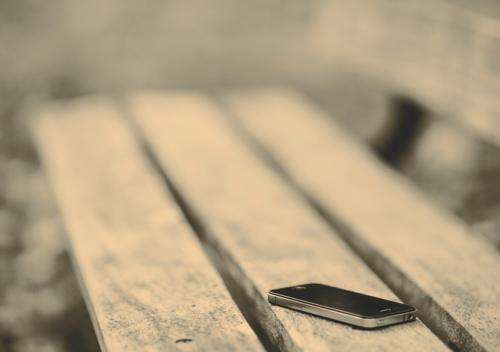Separating a student from their iPhone can be bad for their health and for their brain

If you forgot your phone at home, you may get a sense of being incomplete in some way, the itch you just can't scratch each time you reach for your absentee phone. Our phones have become such integral part of our lives that they feel like they are part of us. Your phone is where your mind goes during a less than captivating business meeting, a boring class, or a family function. Surely you are missing something – a text, an Instagram update, a tweet from Kanye. The possibilities are endless.
Can being away from your phone really have a negative effect on you? To answer that question, researchers advertised a study which allegedly focused on completing word searches and blood pressure. The advert attracted 40 college students who arrived individually and were fitted with a blood-pressure cuff, then worked for five minutes finding the 50 US states within a large word-search puzzle. The more states they found, the more money they would have a chance to win.
Participants were randomly assigned to either complete the puzzle either with or without their iPhone. Those in the "no iPhone" group were informed by the researcher that the phone caused interference with the blood pressure equipment. The researcher, making sure the phone's ringer remained "on", then placed the phone in an adjoining cubicle about four feet away, where the participants could still easily see and hear their phone.
Three minutes into the word-search exercise the researcher called the participant's phone and allowed it to ring six times before hanging up – which took approximately 20 seconds. At the four minute mark, researchers took blood-pressure measurements and then stopped the participant at five minutes.
Those allowed to keep their phones were asked to switch them to "silent mode" while working on the word search. They had their blood pressure measured at four minutes, and were stopped at five minutes.
The participants completed two different word searches, once with their phone and once without, after which they were asked to choose statements that matched their levels of anxiety (for example: "I feel tense") and the extent to which the iPhone was part of their sense of self (for example: "My iPhone is central to my identity").
As predicted, participants felt their iPhone was a greater part of their identity when it was in their possession as opposed to when they were separated from it. When participants were away from their phones the results indicate that they felt greater anxiety, had higher blood pressure, increased heart rate and performed less proficiently on the word search task (in terms of the number of states they could find).
The researchers also looked to see whether amount of daily iPhone use by participants influenced the results, but found there was no difference between those who said they use their phone a lot in their everyday lives and those who only use their phone a little.
Fear of missing out
The results suggest that being separated from your ringing iPhone has negative consequences for your cognitive performance, your feelings of anxiety – and can even effect you physiologically.
The findings on the detrimental effects on cognitive performance are consistent with other research on how mobile phones and texting affect a driver's ability to pay attention. These results are also consistent with other findings that the mere presence of a mobile phone can undermine face-to-face conversation and result in less trust.
There are caveats: the first is that the researchers only used 40 participants when a larger sample would have made the results more convincing. The use of college students may be particularly problematic for the interpretation of these results, as college students may be more attached to their phone than the average person. Finally, the study only focused on iPhones and iPhone users, but it is likely that these results would apply to users of other smartphones as well.
This study provides some compelling initial evidence that our relationship with our phones is likely to be different from the relationships we have with other electronics – such as our TV or laptop. Given the fact that an increasing number of people are using them more and more, it would pay for us to understand these phenomena better.
This story is published courtesy of The Conversation (under Creative Commons-Attribution/No derivatives).
![]()




















